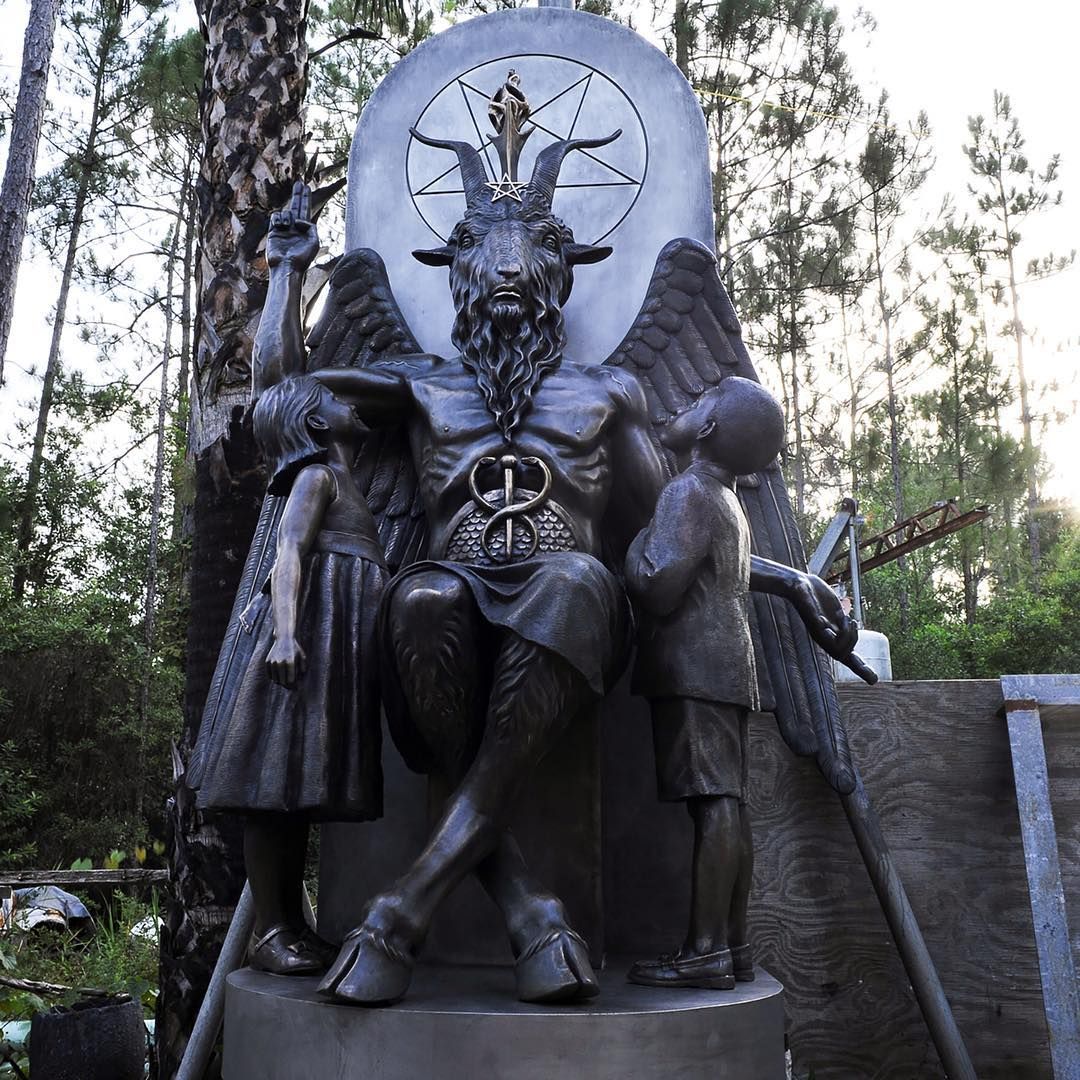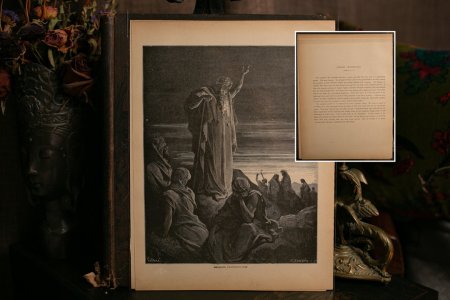- Mar 5, 2024
- 2,275
- 1,125
Bringing The Body Under Submission, Like Soldiers Preparing For War

1 Therefore, since Christ suffered for us in the flesh, arm yourselves also with the same mind, for he who has suffered in the flesh has ceased from sin, 2 that he no longer should live the rest of his time in the flesh for the lusts of men, but for the will of God. 3 For we have spent enough of our past lifetime in doing the will of the Gentiles—when we walked in sexual licentiousness, lusts, wine drinking, revelries, benquetings, and abominable idolatries. 4 In regard to these, they think it strange that you do not run with them in the same flood of dissipation, speaking evil of you. 5 They will give an account to Him who is ready to judge the living and the dead. 6 For this reason the gospel was preached also to those who are dead, that they might be judged according to men in the flesh, but live according to God in the spirit. (1 Peter 4:1-6)
Peter started off here by talking about walking in a certain mentality (v.1-2). They were to "arm themselves with the same mind" as the Old Testament saints who already died and ascended to Heaven, and thus see themselves as having passed from death to Life as well, having now been resurrected as it were in the Spirit.
But it was more than just a mentality. It's clear they were also teaching that there were practical steps believers needed to be taking to make it a reality. Paul told the Colossians to “mortify the flesh,“ and by that he didn't mean kill the body literally but "put it to death” figuratively through fasting. This is a lifestyle Paul lived out by example, for as he once told the Corinthians, "I beat my body and bring it under submission" (1 Corinthians 9:27). What did he mean by that? He was using a boxer's analogy to say that he was continually striking his stomach with his fists to grow accustomed to taking blows, so that it could endure taking punishment. In the spiritual, he meant he was engaging in frequent fasting as a way of bringing the flesh under submission to the Spirit.
Early Church writers here understood Paul to be talking about fasting, for as Ambrosiaster stated in his commentary, "To pummel (or beat) the body is to fast, and to avoid any kind of luxury. Paul shows that he disciplines his own body so that he will not miss out on the reward about which he preaches to others." (Ambrosiaster, Commentary on Paul's Epistles). This is supported by Paul's own words, for he once told the Corinthians he served the Lord, "in perils in the wilderness, in perils at sea, in perils among false brethren, in weariness and toil, in sleeplessness often, in hunger and thirst, and in fastings often." (2 Corinthians 11:26-27). The apostle Paul maintained a habit of fasting.
This cut against the grain of society, which is why Peter said they thought it strange when believers no longer wanted to engage in the same fleshy indulgences. He mentioned both wine drinking and banquets in this passage, and feasts were the high point of all ancient cultures. The dinner party was the classic form of entertainment, and in pagan cultures it was usually accompanied by scantily clad women dancing and singing provocatively as part of the after dinner entertainment. This in turn led to various types of sexual indulgence, hence why Peter said, "For we have spent enough of our past lifetime in doing the will of the Gentiles—when we walked in sexual licentiousness, lusts, and abominable idolatries." There was a connection here between feasting and sexual indulgence which was not to be lost on the reader. Peter was saying that the Christian life involved bringing the flesh under submission, not giving in to its wants, and it was a point he would make in his second letter as well. The Gnostics were sometimes in attendance at the Christian "agapes," or feasts held to feed poorer believers. But instead of denying the flesh, the heretical Gnostics were gratifying it in any way possible, even if it meant seducing Christian wives or husbands away from their partners to do it.
These are spots and blemishes, reveling in their agapes while feasting together with you, having their eyes filled with an adulteress, and with incessant sin, enticing unstable souls, having a heart trained upon sexual covetousness as accursed children. (2 Peter 2:13-14)
There was nothing wrong with an occasional feast, especially if it was intended to help feed poorer believers in Christ Jesus. But the exploitation of these gatherings by those instead living for sexual gratification is likely why the Christian agapes eventually fell out of use, and disappeared from history as a tradition no longer practiced by the church. The dominant teaching held sway that believers were to bring their flesh under submission to the Spirit as true soldiers of the Lord Jesus Christ, and that meant "making no provision for the flesh, to fulfill the lusts thereof."
How Fasting Conquers Sin
As stated, it was widely understood among the ancients that feasting increased the sex drive and led to sexual indulgence, whereas fasting brought it under subjection. Older church traditions like the Eastern Orthodox faith still maintain this teaching and proscribe longer periods of fasting to bring the flesh under. But like the cover image for this study, disciplining the body to such an extent is NOT a pleasant experience. Only the die hard soldier of Christ would even attempt such a thing. And if they do, can they be certain prolonged fasting will have the desired effect of bringing the sex drive more under control?
An experiment was conducted back in the 1940s at the University of Minnesota regarding the effects of semi-starvation on the healthy American male. Where the sex drive was concerned the results were conclusive: A low calorie diet subsisted on over the course of many months effectively brought sexual impulses under control by drastically inhibiting them.
The Minnesota Starvation Experiment, also known as the Minnesota Semi-Starvation Experiment, the Minnesota Starvation-Recovery Experiment and the Starvation Study, was a clinical study performed at the University of Minnesota between November 19, 1944, and December 20, 1945. The investigation was designed to determine the physiological effects of severe and prolonged dietary restriction and the effectiveness of dietary rehabilitation strategies... The 12-month clinical study was performed at the University of Minnesota between November 19, 1944 and December 20, 1945. Throughout the duration of the study each man was assigned specific work tasks, was expected to walk 22 miles (35 km) each week and required to keep a personal diary. An extensive battery of tests was periodically administered, including the collection of metabolic and physical measurements; X-ray examinations; treadmill performance; and intelligence and psychological evaluation.... During the starvation period, the subjects received two meals per day designed to induce the same level of nutritional stress for each participant. Since each subject had distinct metabolic characteristics, the diet of each man was adjusted throughout the starvation period to produce roughly a 25% total weight loss over the 24-week period... Participants exhibited a preoccupation with food, both during the starvation period and the rehabilitation phase. Sexual interest was drastically reduced, and the volunteers showed signs of social withdrawal and isolation. (Minnesota Experiment, Wiki)
So what happened to this teaching on how to bring the flesh under submission? Though it fell out of popularity with the modern church (and one could certainly understand why it would not be a popular teaching), this is what was taught by the church in the beginning:
Fasting cleanses the soul, raises the mind, subjects one’s flesh to the spirit, renders the heart contrite and humble, scatters the clouds of concupiscence, quenches the fire of lust, and kindles the true light of chastity. (Augustine, On Prayer and Fasting.)
The belly when filled with all kinds of food gives birth to seeds of wantonness, nor can the mind, when choked with the weight of food, keep the guidance and government of the thoughts. (John Cassian, Institutes of the Coenobia, Book V, Chapter VI)
I should wonder at the Gnostics (literally, "the Psychics"), if they were enthralled to voluptuousness alone which leads them to repeated marriages, if they were not likewise bursting with gluttony which leads them to hate fasts. Lust without voracity would certainly be considered a monstrous phenomenon, since these two are so united and concrete... through love of eating, love of impurity finds passage. I therefore recognize animalistic faith by its care of the flesh, [being] as prone to manifold feeding as to manifold marrying (Tertullian, On Fasting, Chapter 1)
The fast is the protection of virtue, the beginning of self-sacrifice, a wreath of abstinence, the beauty of virginity and holiness, the shine of chastity, the basis of a Christian life, the father of prayer, the originator of chastity and wisdom, the instructor of silence, and the leader to everything good. (St. Isaac the Syrian)
1 Therefore, since Christ suffered for us in the flesh, arm yourselves also with the same mind, for he who has suffered in the flesh has ceased from sin, 2 that he no longer should live the rest of his time in the flesh for the lusts of men, but for the will of God. 3 For we have spent enough of our past lifetime in doing the will of the Gentiles—when we walked in sexual licentiousness, lusts, wine drinking, revelries, benquetings, and abominable idolatries. 4 In regard to these, they think it strange that you do not run with them in the same flood of dissipation, speaking evil of you. 5 They will give an account to Him who is ready to judge the living and the dead. 6 For this reason the gospel was preached also to those who are dead, that they might be judged according to men in the flesh, but live according to God in the spirit. (1 Peter 4:1-6)
Peter started off here by talking about walking in a certain mentality (v.1-2). They were to "arm themselves with the same mind" as the Old Testament saints who already died and ascended to Heaven, and thus see themselves as having passed from death to Life as well, having now been resurrected as it were in the Spirit.
But it was more than just a mentality. It's clear they were also teaching that there were practical steps believers needed to be taking to make it a reality. Paul told the Colossians to “mortify the flesh,“ and by that he didn't mean kill the body literally but "put it to death” figuratively through fasting. This is a lifestyle Paul lived out by example, for as he once told the Corinthians, "I beat my body and bring it under submission" (1 Corinthians 9:27). What did he mean by that? He was using a boxer's analogy to say that he was continually striking his stomach with his fists to grow accustomed to taking blows, so that it could endure taking punishment. In the spiritual, he meant he was engaging in frequent fasting as a way of bringing the flesh under submission to the Spirit.
Early Church writers here understood Paul to be talking about fasting, for as Ambrosiaster stated in his commentary, "To pummel (or beat) the body is to fast, and to avoid any kind of luxury. Paul shows that he disciplines his own body so that he will not miss out on the reward about which he preaches to others." (Ambrosiaster, Commentary on Paul's Epistles). This is supported by Paul's own words, for he once told the Corinthians he served the Lord, "in perils in the wilderness, in perils at sea, in perils among false brethren, in weariness and toil, in sleeplessness often, in hunger and thirst, and in fastings often." (2 Corinthians 11:26-27). The apostle Paul maintained a habit of fasting.
This cut against the grain of society, which is why Peter said they thought it strange when believers no longer wanted to engage in the same fleshy indulgences. He mentioned both wine drinking and banquets in this passage, and feasts were the high point of all ancient cultures. The dinner party was the classic form of entertainment, and in pagan cultures it was usually accompanied by scantily clad women dancing and singing provocatively as part of the after dinner entertainment. This in turn led to various types of sexual indulgence, hence why Peter said, "For we have spent enough of our past lifetime in doing the will of the Gentiles—when we walked in sexual licentiousness, lusts, and abominable idolatries." There was a connection here between feasting and sexual indulgence which was not to be lost on the reader. Peter was saying that the Christian life involved bringing the flesh under submission, not giving in to its wants, and it was a point he would make in his second letter as well. The Gnostics were sometimes in attendance at the Christian "agapes," or feasts held to feed poorer believers. But instead of denying the flesh, the heretical Gnostics were gratifying it in any way possible, even if it meant seducing Christian wives or husbands away from their partners to do it.
These are spots and blemishes, reveling in their agapes while feasting together with you, having their eyes filled with an adulteress, and with incessant sin, enticing unstable souls, having a heart trained upon sexual covetousness as accursed children. (2 Peter 2:13-14)
There was nothing wrong with an occasional feast, especially if it was intended to help feed poorer believers in Christ Jesus. But the exploitation of these gatherings by those instead living for sexual gratification is likely why the Christian agapes eventually fell out of use, and disappeared from history as a tradition no longer practiced by the church. The dominant teaching held sway that believers were to bring their flesh under submission to the Spirit as true soldiers of the Lord Jesus Christ, and that meant "making no provision for the flesh, to fulfill the lusts thereof."
How Fasting Conquers Sin
As stated, it was widely understood among the ancients that feasting increased the sex drive and led to sexual indulgence, whereas fasting brought it under subjection. Older church traditions like the Eastern Orthodox faith still maintain this teaching and proscribe longer periods of fasting to bring the flesh under. But like the cover image for this study, disciplining the body to such an extent is NOT a pleasant experience. Only the die hard soldier of Christ would even attempt such a thing. And if they do, can they be certain prolonged fasting will have the desired effect of bringing the sex drive more under control?
An experiment was conducted back in the 1940s at the University of Minnesota regarding the effects of semi-starvation on the healthy American male. Where the sex drive was concerned the results were conclusive: A low calorie diet subsisted on over the course of many months effectively brought sexual impulses under control by drastically inhibiting them.
The Minnesota Starvation Experiment, also known as the Minnesota Semi-Starvation Experiment, the Minnesota Starvation-Recovery Experiment and the Starvation Study, was a clinical study performed at the University of Minnesota between November 19, 1944, and December 20, 1945. The investigation was designed to determine the physiological effects of severe and prolonged dietary restriction and the effectiveness of dietary rehabilitation strategies... The 12-month clinical study was performed at the University of Minnesota between November 19, 1944 and December 20, 1945. Throughout the duration of the study each man was assigned specific work tasks, was expected to walk 22 miles (35 km) each week and required to keep a personal diary. An extensive battery of tests was periodically administered, including the collection of metabolic and physical measurements; X-ray examinations; treadmill performance; and intelligence and psychological evaluation.... During the starvation period, the subjects received two meals per day designed to induce the same level of nutritional stress for each participant. Since each subject had distinct metabolic characteristics, the diet of each man was adjusted throughout the starvation period to produce roughly a 25% total weight loss over the 24-week period... Participants exhibited a preoccupation with food, both during the starvation period and the rehabilitation phase. Sexual interest was drastically reduced, and the volunteers showed signs of social withdrawal and isolation. (Minnesota Experiment, Wiki)
So what happened to this teaching on how to bring the flesh under submission? Though it fell out of popularity with the modern church (and one could certainly understand why it would not be a popular teaching), this is what was taught by the church in the beginning:
Fasting cleanses the soul, raises the mind, subjects one’s flesh to the spirit, renders the heart contrite and humble, scatters the clouds of concupiscence, quenches the fire of lust, and kindles the true light of chastity. (Augustine, On Prayer and Fasting.)
The belly when filled with all kinds of food gives birth to seeds of wantonness, nor can the mind, when choked with the weight of food, keep the guidance and government of the thoughts. (John Cassian, Institutes of the Coenobia, Book V, Chapter VI)
I should wonder at the Gnostics (literally, "the Psychics"), if they were enthralled to voluptuousness alone which leads them to repeated marriages, if they were not likewise bursting with gluttony which leads them to hate fasts. Lust without voracity would certainly be considered a monstrous phenomenon, since these two are so united and concrete... through love of eating, love of impurity finds passage. I therefore recognize animalistic faith by its care of the flesh, [being] as prone to manifold feeding as to manifold marrying (Tertullian, On Fasting, Chapter 1)
The fast is the protection of virtue, the beginning of self-sacrifice, a wreath of abstinence, the beauty of virginity and holiness, the shine of chastity, the basis of a Christian life, the father of prayer, the originator of chastity and wisdom, the instructor of silence, and the leader to everything good. (St. Isaac the Syrian)









